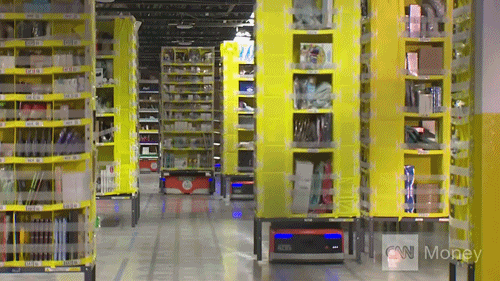Every political season has its boogeymen, those frightening figures raised to scare up votes, and this particularly vitriolic period in the U.S. has Muslims, Mexicans and Chinese manufacturers. The latter pair are supposedly responsible for the decline of American manufacturing, and by extension, the middle class.
Outsourcing the making of American products to other countries may have been somewhat of a problem over the last three decades, but it’s a different kind of challenge workers are facing today: Potentially widespread automation that goes far beyond the factory floor. It’s nothing new, but the current pace of robotics progress is unprecedented.
Technological unemployment has been paid scant attention by 2016 hopefuls, most of whom are promising a return to postwar American manufacturing, which is most definitely not going to happen. In a New York Times editorial, Emma Roller argues that trying to turn back the digital clock is “not an attainable, or even a desirable, goal.” An excerpt:
Republicans aren’t the only ones obsessing over reclaiming these factory jobs. Last month, Hillary Clinton mentioned factory closings when she released her own plan to restore manufacturing jobs through a network of tax credits and federal funding for research. Senator Bernie Sanders, meanwhile, in criticizing the Trans-Pacific Partnership, has argued that such international trade deals are to blame for the loss of manufacturing jobs in this country.
The problem with this sort of rhetoric is that a lot of the manufacturing jobs the United States lost over the past 50 years didn’t go overseas; they simply disappeared with the advent of new technology.
James Sherk, a research fellow in labor economics at the Heritage Foundation, said the trend in machines taking over factory work that was previously done by humans has been going on since the 1950s. But for presidential candidates, it’s a lot easier to blame other countries rather than robots.
“It’s those basically rote, repetitive tasks where you’re fixing the same thing,” he said. “It’s very hard to imagine any of those positions coming back. Basically, a robot is a lot more affordable than a human employee.”
The skills needed to work on a factory floor today are quite different than they were 20, 10 or even five years ago. Don’t blame stingy companies or over-regulation by the government; blame the rapid progress of technology.•
Tags: Emma Roller, James Sherk

